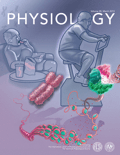
PHYSIOLOGY
Scope & Guideline
Connecting Disciplines to Enhance Physiological Understanding
Introduction
Aims and Scopes
- Cardiovascular Physiology:
Research in this area explores the mechanisms underlying cardiovascular function, including blood pressure regulation, vascular reactivity, and the effects of various treatments on heart health. - Neurophysiology:
This scope encompasses studies on neuronal signaling, brain function, and the interactions between the nervous system and other physiological systems, particularly in relation to stress and metabolic control. - Endocrine Physiology:
Investigations into hormone signaling pathways and their impact on metabolism, growth, and homeostasis, with a focus on gender differences and hormonal regulation of physiological responses. - Metabolic Physiology:
Research focusing on metabolic processes, including energy expenditure, nutrient metabolism, and the effects of dietary components on health outcomes. - Renal Physiology:
Studies addressing kidney function, mechanisms of renal injury, and the role of the kidney in systemic physiology and disease. - Exercise Physiology:
Exploration of the physiological adaptations to physical activity, including the effects of exercise on cardiovascular health, muscle function, and metabolic regulation. - Pathophysiology:
Research that connects physiological mechanisms to disease states, exploring the underlying factors that contribute to conditions such as obesity, diabetes, and cardiovascular diseases. - Microbiome and Gut Physiology:
Investigations into the interactions between gut microbiota and host physiology, focusing on the implications for metabolic health, immunity, and gastrointestinal function.
Trending and Emerging
- Impact of Environmental Stressors:
There is an increasing focus on how environmental factors, such as air pollution and climate change, impact physiological responses and contribute to health disparities. - Integrative Physiology:
Research that combines multiple physiological systems to understand complex interactions is on the rise, emphasizing holistic approaches to health and disease. - Microbiome Research:
The role of the gut microbiome in influencing metabolic health and disease progression is gaining prominence, with studies exploring the gut-brain axis and its implications for cardiovascular and metabolic disorders. - Technological Advancements in Physiology:
Studies utilizing advanced imaging techniques, wearable technology, and AI-driven analysis tools are emerging, reflecting a trend towards innovative methodologies in physiological research. - Translational Research:
There is a marked increase in studies aimed at translating basic physiological research into clinical applications, particularly in the fields of cardiovascular health, metabolic syndrome, and neurodegeneration. - Sex Differences in Physiology:
Research aimed at understanding the physiological differences between sexes is gaining attention, particularly in the context of disease susceptibility and treatment efficacy. - Neurovascular Interactions:
The exploration of interactions between the nervous system and vascular function is trending, particularly related to stress responses and neurodegenerative diseases.
Declining or Waning
- Traditional Pharmacology:
Research centered on conventional pharmacological interventions is declining, possibly due to a growing emphasis on personalized medicine and alternative therapeutic strategies. - Basic Cellular Mechanisms:
Studies focused solely on basic cellular mechanisms without translational implications are less frequent, as the journal increasingly prioritizes studies that link cellular biology to whole-organism physiology. - Animal Models of Disease:
While animal studies are still important, there is a noticeable shift towards more human-centric research, with less emphasis on rodent models in specific disease contexts. - Invasive Procedures in Human Physiology Research:
Invasive studies in human participants are becoming less common as non-invasive technologies and methodologies gain traction, reflecting ethical considerations and advancements in imaging techniques.
Similar Journals
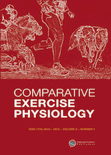
Comparative Exercise Physiology
Exploring the Dynamics of Exercise in Diverse ContextsComparative Exercise Physiology is a peer-reviewed journal published by Wageningen Academic Publishers focused on advancing the scientific understanding of exercise physiology across various species and contexts. With its ISSN 1755-2540 and E-ISSN 1755-2559, it serves as a vital platform for disseminating research findings that bridge the gap between exercise science and comparative physiology, enriching the fields of biochemistry, biophysics, and sports medicine. The journal holds a notable position in the academic landscape, with a Q4 ranking in multiple categories and a commendable Q3 ranking in Orthopedics and Sports Medicine, highlighting its relevance and contribution to these domains. Although it operates without an Open Access model, the journal remains committed to providing well-researched and insightful articles that appeal to a diverse audience of researchers, professionals, and students aiming to enhance their knowledge and application of exercise physiology in both human and veterinary contexts. By fostering interdisciplinary dialogue and offering comprehensive insights, Comparative Exercise Physiology plays a crucial role in the pursuit of knowledge in the ever-evolving field of exercise science.
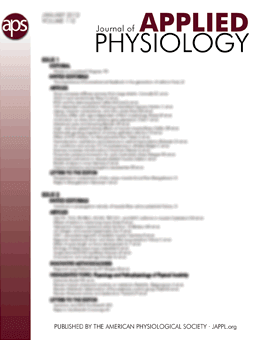
Journal of Applied Physiology
Unveiling the Complexities of Human Physiology.The Journal of Applied Physiology, established in 1948 and published by the American Physiological Society, stands as a cornerstone in the field of physiology and applied health sciences. With an impact factor reflecting its rigorous scholarly contributions, this peer-reviewed journal ranks in the Q1 category for both Medicine (miscellaneous) and Physiology as of 2023, further emphasizing its prestige and relevance. Researchers and practitioners are drawn to its comprehensive scope, which includes physiological and biomechanical responses relevant to health, exercise, and clinical practices, making it an essential resource for advancements in sports science and medical physiology. Though it does not offer Open Access, the journal provides a wealth of high-quality research, with contributions that are crucial for understanding the complexities of human physiology. Its inclusion in Scopus ranks demonstrates a solid commitment to advancing knowledge in the field, appealing to a diverse audience of researchers, professionals, and students committed to exploring the intricate interactions between physiological processes and applied health.
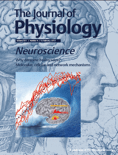
JOURNAL OF PHYSIOLOGY-LONDON
Connecting History with Future Discoveries in PhysiologyJOURNAL OF PHYSIOLOGY-LONDON, published by WILEY, stands as a prestigious beacon in the fields of Physiology and Sports Science. Established in 1878, this journal has a rich history of disseminating crucial research findings and advancing scientific knowledge, continuing its impact into the present day with an anticipated convergence in 2024. Recognized for its excellence, it ranks in the Q1 category for both Physiology and Sports Science in 2023, cementing its position within the top echelons of academic publications. With a Scopus rank of #26 out of 193 in the Biochemistry, Genetics and Molecular Biology _ Physiology category, the journal boasts an impressive 86th percentile, reflecting its high-quality contributions to the scientific community. Although not open access, its extensive archive and reputation ensure that it remains a vital resource for researchers, professionals, and students eager to stay at the forefront of physiological science. For those looking to deepen their understanding of physiological mechanisms and their applications, the JOURNAL OF PHYSIOLOGY-LONDON is an indispensable resource.
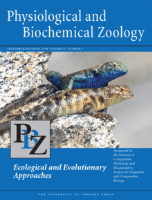
PHYSIOLOGICAL AND BIOCHEMICAL ZOOLOGY
Exploring the Depths of Animal LifePhysiological and Biochemical Zoology is a distinguished peer-reviewed journal published by University of Chicago Press, focusing on the interrelated fields of animal physiology, biochemistry, and zoology. With a strong commitment to advancing scientific understanding, this journal serves as a vital resource for researchers, professionals, and students alike, providing a platform for the latest findings and advancements in the field. Ranking in the top quartile (Q1) in Animal Science and Zoology as of 2023, and showcasing a substantial convergence of historical data from 1999 to 2023, its impact in the academic community is underscored by its engagement with high-quality research. While it also appears in the third quartile for Biochemistry and Physiology, the journal successfully integrates these disciplines, reflecting the complexity of biological systems. Available for reading via various access options, this journal is essential for anyone seeking to deepen their knowledge or contribute to the field of Zoological sciences.

Journal of Comparative Physiology B-Biochemical Systems and Environmental Physiology
Unlocking the Secrets of Biochemical Systems in NatureJournal of Comparative Physiology B-Biochemical Systems and Environmental Physiology, published by SPRINGER HEIDELBERG in Germany, stands at the forefront of research in the fields of physiology, biochemistry, and ecological systems. With a commitment to fostering interdisciplinary communication, this journal has been a vital resource since its inception in 1974, converging scientific exploration through the lens of biochemical mechanisms and environmental adaptations in animal systems. Renowned for its rigorous peer-review process, it has achieved impressive rankings, including Q2 in Animal Science and Zoology and Ecology, Evolution, Behavior and Systematics, reflecting its substantial impact within these disciplines. The journal aims to disseminate cutting-edge research that advances our understanding of physiological and biochemical processes while addressing contemporary environmental challenges. While currently operating on a traditional access model, the journal's contributions are crucial for researchers, professionals, and students seeking profound insights into the complex interactions between organisms and their environments.

PHYSIOLOGICAL RESEARCH
Illuminating the Pathways of Physiological SciencePHYSIOLOGICAL RESEARCH, published by the Academy of Sciences of the Czech Republic, Institute of Physiology, serves as a prominent platform for scholarly contributions in the field of physiology and related disciplines. With an impact factor that highlights its significance—ranking in the Q2 category in Medicine (miscellaneous) and the Q3 in Physiology as of 2023—this journal has established itself as a vital resource for researchers, professionals, and students. Since becoming Open Access in 1991, it has broadened its reach, ensuring that vital research is freely available to academic communities worldwide. Covering a diverse range of topics, PHYSIOLOGICAL RESEARCH attracts submissions that advance the understanding of physiological processes, making it an indispensable resource for those invested in the field. Based in Prague, Czech Republic, this journal offers an enriching medium for discourse and dissemination in physiology, contributing to the global scientific landscape.

CHINESE JOURNAL OF PHYSIOLOGY
Innovating the understanding of life sciences.CHINESE JOURNAL OF PHYSIOLOGY, published by WOLTERS KLUWER MEDKNOW PUBLICATIONS, has been a vital resource since its inception in 1971, catering to the expansive field of physiology. Operating out of Taiwan, this journal addresses critical research in both general and medical physiology, providing a platform for innovative studies that contribute significantly to the understanding of biological processes. With an emphasis on disseminating high-quality, peer-reviewed articles, it holds a Q4 ranking in Physiology and a Q3 ranking in Medical Physiology as of 2023, reflecting its commitment to advancing physiological science. The ISSN for this journal is 0304-4920 and the E-ISSN is 2666-0059. While access options are not available as open access, researchers and professionals can still benefit from its valuable insights. Notably, it ranks #78/113 in Medicine - Physiology and #159/193 in Biochemistry, Genetics, and Molecular Biology - Physiology on Scopus, indicating its growing influence in the scientific community. We invite researchers, professionals, and students alike to explore the wealth of knowledge featured within the pages of the CHINESE JOURNAL OF PHYSIOLOGY.
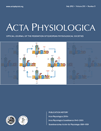
Acta Physiologica
Advancing the Frontiers of Physiological ResearchActa Physiologica is a premier, peer-reviewed journal published by WILEY, dedicated to the dissemination of high-quality research across the field of physiology. With an impressive impact factor reflective of its Q1 category ranking in Physiology for 2023, this journal is a vital resource for researchers, professionals, and students alike, seeking to explore the complexities of biological systems. The journal is indexed with a commendable Scopus rank of #18 out of 193 in its category, placing it within the top 10% of its field, which underscores its influence and citation frequency within the academic community. Acta Physiologica publishes a variety of articles that address fundamental physiological concepts, innovative methodologies, and cross-disciplinary research. With its open access options, the journal ensures that cutting-edge knowledge is readily accessible, fostering an environment of collaboration and advancement in the study of physiology. Spanning from 2006 to 2024, the journal continues to be at the forefront of physiological research and education, encouraging the global sharing of knowledge through its comprehensive content.

PFLUGERS ARCHIV-EUROPEAN JOURNAL OF PHYSIOLOGY
Catalyzing Knowledge in Physiology and MedicinePflügers Archiv - European Journal of Physiology, published by Springer Heidelberg, stands at the forefront of physiological research, showcasing groundbreaking studies since its inception in the 1950s. With a distinguished ISSN of 0031-6768 and an E-ISSN of 1432-2013, this esteemed journal maintains a robust reputation, holding Q1 rankings in Clinical Biochemistry, Physiology, and Medical Physiology as of 2023. Its impressive Scopus rankings place it in the top percentile across various categories, including Biochemistry, Genetics and Molecular Biology and Medicine. Pflügers Archiv serves as a vital platform for researchers, professionals, and students, facilitating the dissemination and discussion of advanced physiological concepts and methodologies. Although it does not currently offer open access, its rigorous peer-review process ensures the highest quality publications that contribute significantly to our understanding of physiological science. Explore the depth of physiological research that shapes our academic landscape today.

Function
Exploring the intersection of biology and medicine for impactful insights.Function is a pioneering open access academic journal published by Oxford University Press, dedicated to advancing research in the fields of Cancer Research, Cell Biology, Molecular Medicine, and Physiology. Since its inception in 2020, this journal has quickly established itself as a vital resource for researchers and professionals alike, achieving a commendable impact factor in the 2023 rankings, where it stands in the Q2 quartile across multiple categories. Located in the heart of the United Kingdom, Function aims to foster a global exchange of knowledge by providing free and unrestricted access to cutting-edge research, facilitating collaboration and innovation within the scientific community. With a robust focus on emerging discoveries and interdisciplinary approaches, this journal encourages contributions that unravel the complexities of biological functions, paving the way for transformative advancements in healthcare and related sciences. As it converges from 2020 to 2024, Function continues to be an invaluable platform for disseminating research that has the potential to shape the future of medicine and biology.